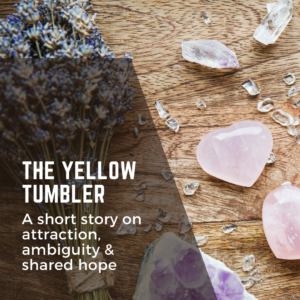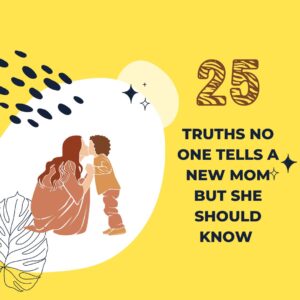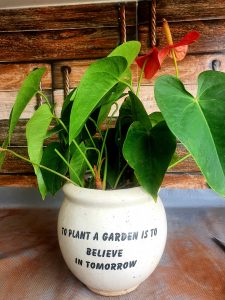Little bit of nostalgia, lots of awe and oodles of...
Read More5 Key Learnings from Okinawan Lifestyle Towards Holistic Health


I had heard about the Okinawan way of life when I first picked the book Ikigai many years back. At that point in time it was a casual read much less the way a book of such weightage should actually receive. Nonetheless, be it then or now, when I re-read it with a slightly more serious approach, the purposeful lifestyle of the community centered Okinawans, fascinated me. I dread of living long enough without being certain about being physically and mentally strong and so when I discovered this stat wherein two-thirds of the residents in Okinawa function independently at the mean age of 97 years, I knew there was substance to their secrets. The Land of Immortals is definitely there on my travel bucket-list, for some day 🙂
The Far East Caribbean
The Okinawa Islands are just south of Japan. There are over a hundred of the islands in total, with the largest and most populated among them taking the namesake of Okinawa. It’s a tropical area, a Caribbean archipelago of East Asia, and the people there have their own relaxed, refreshingly tropical way of living that separates them from the bigger islands of Japan.
What’s unique about the Okinawa Prefecture is the longevity and healthy lifestyle of the people there. It is included as one of the “Blue Zones”, the areas where people live exceptionally long lives. They not only live longer but live an incredibly good life. They are people who put their purpose into action.
The ideas and ideals followed by them though are not exclusive to any island culture only and can be used anywhere. You might not get all the tropical food native to their culture owing to the diet which is an important component too, but you can live like an Okinawan even in a snow covered winter country.


So what enables them to lead such fairy tale lives with deep meaning coupled with a feeling of being eternally young? I’m attempting to put out some perspectives I resonated with.
Community is What you Make it
There is a word unique to Okinawa that defines their sense of bonding and community. They extend this community to anyone, with a word “Icharibachodee” (EE-char-ee-BAH-choe-dee) which translates to “Once you meet, you are brothers.”
In other words, don’t let simple boundaries stop you from connecting with each other. Community is greater than the limits you can see.
“Moai”, (Mo-Eye) roughly translates to “meeting for a common purpose”. The concept of Moai started in Okinawa when the rural place didn’t have a bank. At that time, people got into groups and all members donated equal amounts of money towards building a mutual fund. The money was then used for the person who needed it the most (sending a kid for higher learning, hospital needs etc.) who in turn later helped others in different ways. This kind of secure, safety nets lent financial, social and emotional support and they forged lifelong bonds. Basically, everyone had each other’s’ back and committed to their overall well-being.
Humans need emotional intimacy. We need our social connections as we are inherently social beings. Our body for that matter is also a network with different cells forming tissues in turn making up organs and thereby organ systems. Social cohesion can be said to be the bedrock of our happiness. Being a part of a group that you can fall back on anytime is indeed a blessing.
Loosen your Watch
From what I have read, seen and heard, when traveling in mainland Japan, one can set their watches by the precise arrival of a public transport. In stark contrast, Okinawan people operate on much more relaxed timelines as their busier neighbors to the north. “Uchinaa Time”, or Okinawan Time, is their own word to explain their relaxed standards. You do it when you can. No need to rush and no fears of being late. They don’t add the pressure of a ticking clock to their activities, and are more forgiving of lateness.


Their trust in community is enough to ensure that whatever needs done will get done. You might not convince your boss at work of the same thing, but being more open minded about time helps you control it.
I’m extremely time-sensitive and prefer being earlier than late to an extent that it stresses me out. My takeaway here is not that it’s okay to be late but more about how abiding by time is a discipline that shouldn’t make me anxious.
Don’t be Afraid to be Happy
This one’s the real BIG lesson for me. Happiness for me comes with underlying sentiments of fear and guilt. Fear that a joyful event would normally be followed by some calamity or the guilt that when there are so many around me facing problems or suffering how can I be happy. This kind of conditioning and inner dynamic not only robs me of the delight that accompanies good things but also evolves into a pattern creating restlessness.
Okinawan people are big on performance. Don’t hide what you feel jubilant about doing to express your happiness. Don’t hide your voice if you feel like singing. Don’t get tied to judgements when you want to be yourself. There are frequent, nearly constant gatherings of singing or dancing in public spaces because they like it. It builds up a sense of community, it fosters camaraderie and respect and most importantly, it lets you enjoy life in little moments at a time. You’ll feel much better if you give it your all.
Ridding ourselves of the fear and guilt enriches both our own life and those in our vicinity. The joy that we spread from being cheerful should be enough to free us from any remorse.
Nature is Already Perfect
From the people to the architecture to the food, the whole view of beauty in appearance is rooted in what is natural. Okinawan presentation isn’t about the most perfect appearance. It’s about what is real, natural, and already perfect.
To be natural is beautiful, and so they embrace nature around them.


Value your Work with your Life
You may live in a cold, dark place, but there is always a place or opportunity to grow things. Okinawa enjoys a nearly constant tropical climate. In the summer the weather takes a downturn, but even then they will be growing and working.
“Nuchigusui” (NOO-chee-goo-SOO-ee) is an Okinawan proverb for “Food Is Medicine” which plays a significant role in their successful aging phenomena. Their habit of “hara hachi bu,” which means eat only until you are 80 percent full. It’s believed that the stomach takes about 20 minutes to let the body know how full it actually is so stopping at 80 percent capacity gives the stomach’s stretch receptors time to catch up.
They treat their bodies, not out of sickness, but to preserve health. The balance with nature reflects inside of them as well, providing a balanced and holistic lifestyle that is natural to their climate. But this isn’t restricted to them because of where they live. This lifestyle can be lived anywhere as long as one wants to. The spirit of Okinawa isn’t in summer sun or sandy beaches.
It’s not like the life in Okinawa is a walk in the park or that they have got everything easy. By focusing on the little joys and what’s truly important they measure life by quality of relationships, finding peace of mind and being content while living an active meaningful life.
Please share my post
My recent posts
The Yellow Tumbler
A short fictional story “The woods,” she said, looking at...
Read More25 Things No One Tells a New Mom But She Should Absolutely Know
Blog Conversations Life Musings Parenting Reviews Wellness About Me X...
Read MoreDo You Have A Happy Corner In Your Home?
Blog Conversations Life Musings Parenting Reviews Wellness About Me X...
Read MoreUseful Links
Subscribe Now
Don’t miss our future updates! Get Subscribed Today!





